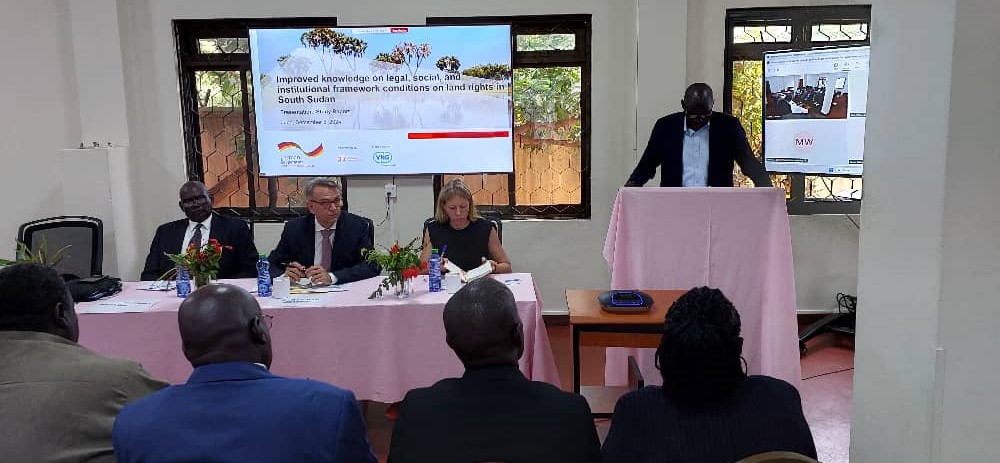German Development Cooperation agency (GIZ) Wednesday presented a report on land rights in South Sudan.
The report is titled: Improved knowledge on legal, social, and institutional framework conditions on land rights in South Sudan, and was authored by VNG International. It draws on extensive research, including desk reviews; key informant interviews, and focus group discussions at national and local levels.
It aims to provide deeper understanding of the land rights issues in the country, informing policy development and implementation.
The report, to be published soon, includes chapters about the legal framework, land administration and registration, dispute resolution and conflict management, land use planning and management, gender equality and social inclusion on land, as well as a case study on land administration and management in Yei River County. It summarizes challenges and points out recommendations for relevant actors and the implementation of future development cooperation measures.
The Head of German Cooperation, Dr Björn Niere, stated in his opening remarks that land tenure and access were essential for all aspects of life in South Sudan.
“Land rights and the ability to use and own land are vital for the economic growth and sustainable development of the country,” Njere stated.
The Undersecretary in the Ministry of Lands, Housing and Urban Development, Louis Kwot Akolith, pointed out the importance of coordination and cooperation among institutions about the land rights debate, adding that governance is a key issue for a sustainable development in South Sudan.
The report reveals that land rights in South Sudan were influenced by a complex interplay of ownership, government policies, community dynamics, and resource utilization. It notes that negative customary norms and practices, particularly affecting gender equality, hinder the implementation of the legal framework.
VNGI expert Esther Obaikol emphasized the need to promote gender equality in land rights. She called for enhanced implementation of the legal framework and improved land administration and registration systems.
A panel discussion involving government officials, representatives of international organizations, and civil society representatives explored the implications of the report. Among the panelists were Robert Ladu Luki (Chairperson, Land Commission), Savia Sylvester (Coordinator for Land Units, MLHUD), Ambrose Lomin (Chairperson, Specialized Land Committee, National Legislative Assembly), Meshack Malo (Country Representative, FAO), and Akolith.




